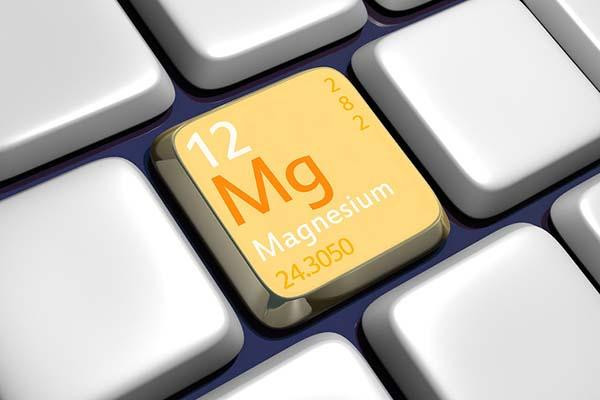What you should know about magnesium

You need magnesium for many tasks. It's involved in more than 300 chemical reactions in the body. Muscles need this mineral to contract; nerves need it to send and receive messages. It keeps your heart beating steadily and your immune system strong. Most people can get enough magnesium by eating foods such as green leafy vegetables, whole grains, beans, nuts, and fish.
Dr. Bruce Bistrian, chief of clinical nutrition at Beth Israel Deaconess Medical Center and professor of medicine at Harvard Medical School, says magnesium deficiency in otherwise healthy individuals eating a balanced diet is rare. "The kidney has an extraordinary ability to reduce magnesium loss in urine, and thus achieve magnesium balance on a wide variety of intakes," he explains.
Even with an adequate diet, some people are at increased risk of magnesium deficiency, including people with digestive disorders, such as celiac disease and chronic diarrhea. Also certain medicines (including some "water pills" and antibiotics) can lower blood magnesium levels.
In these situations, magnesium supplements may be necessary, but taking too much can cause or worsen diarrhea. People with chronic kidney disease should not take supplements unless prescribed by their doctor.
Magnesium supplements are sometimes marketed as "super-pills" that can fix a long list of ailments such as muscle tension, low energy, and trouble sleeping in people with adequate total body magnesium. The evidence to support the claims just isn't there.
If you're concerned about low magnesium, ask your doctor for a blood test. To maintain a healthy magnesium level, it's best to get this mineral from food, especially high-fiber foods such as dark green leafy vegetables, unrefined grains, and beans. The recommended dietary allowance (RDA) of magnesium for adults is 420 milligrams (mg) per day.
Magnesium-rich foods |
|
|
1 ounce dry-roasted almonds |
80 milligrams |
|
1/2 cup frozen spinach (cooked) |
78 milligrams |
|
3/4 cup bran flakes |
64 milligrams |
|
1 medium baked potato, with skin |
48 milligrams |
|
1/2 cup canned kidney beans |
35 milligrams |
For more on magnesium and other nutrients that can keep you healthy, buy Making Sense of Vitamins and Minerals, a Special Health Report from Harvard Medical School.
Disclaimer:
As a service to our readers, Harvard Health Publishing provides access to our library of archived content. Please note the date of last review or update on all articles.
No content on this site, regardless of date, should ever be used as a substitute for direct medical advice from your doctor or other qualified clinician.















